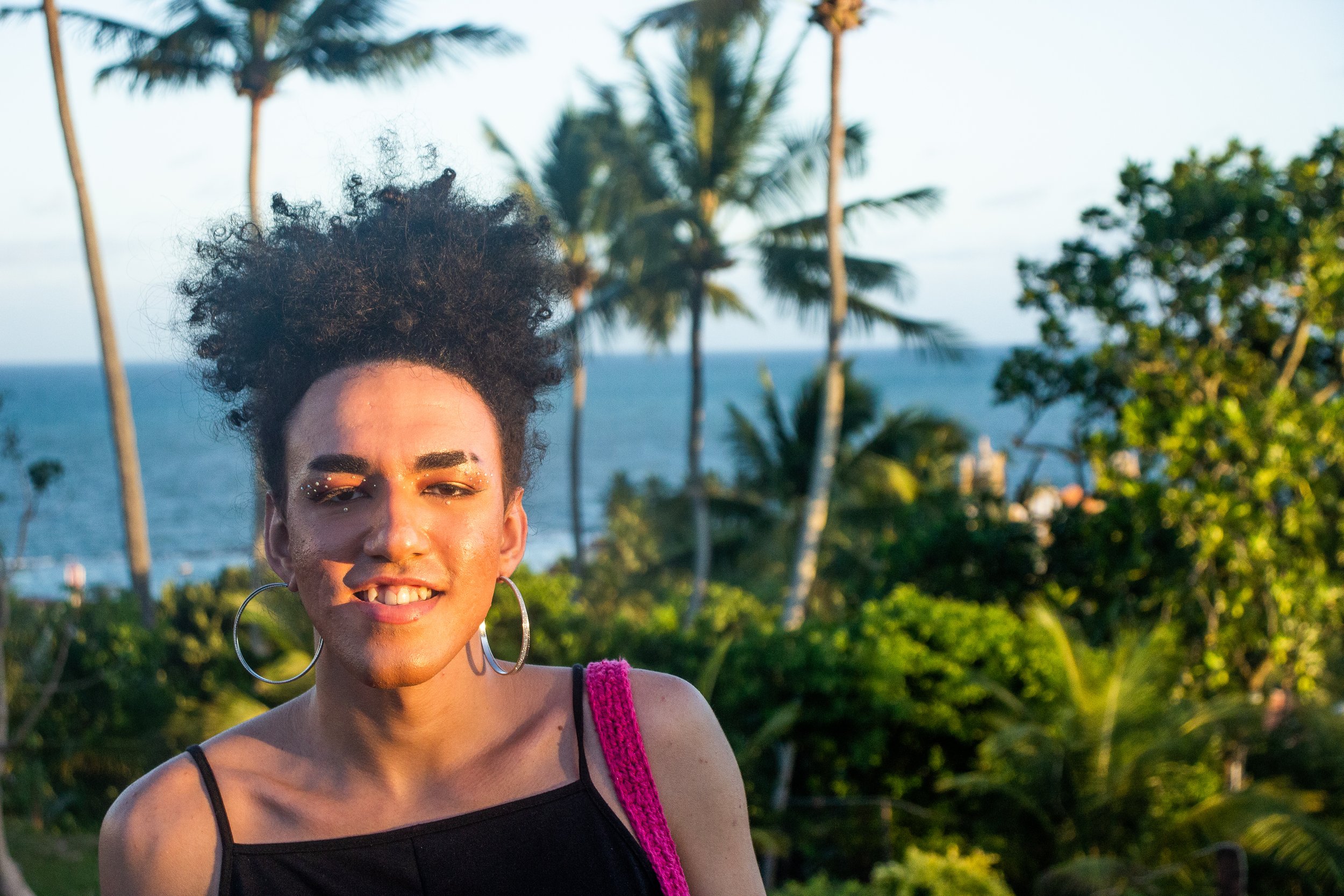The experience of being a travesti girl at a public university in Brazil
“The Transvestis Network is also a space of struggle. We will simply not accept the fact that transgender people are often discriminated against and denied access to spaces based on their identity. Entering the network made me feel embraced and part of a community,” shares Lua Quinelato. (Photo courtesy of Karina Gomes)
19-year-old Lua Quinelato reflects on her experience in a public university as a travesti girl and finding community, and writing the #GirlsDecide Manifesto, demanding quality, equal education for all.
The beginning of 2022 was the start of a dream come true — my dream of entering university. I knew it would bring many obstacles, but I was sure it would completely change my perception of the world. I wondered if I would be able to complete my studies due to my educational background, coming from a weak public school that did not prepare me properly. Additionally, I doubted if I would be able to enter the job market.
Studying at a public university makes you look at your life from a different perspective, and makes you more willing to share your struggles because once you are there, you realise you cannot do anything alone. The learning process depends on collaborations with teachers and colleagues.
Attending a humanities course, particularly a bachelor's degree, can often trap you in a bubble if you do not try to experience the larger university community. You can easily end up only discussing topics with students who have similar views and perspectives as you — trapped in an echo chamber.
Being a travesti girl, or transvestite girl, studying education is not simple. Let alone being a transvestite girl who wants to teach children. Identities outside of cisheteronormativity have been historically marginalised. Existing within children's spaces, which are seen as spaces of innocence, is always very difficult because people often see transvestite identities as threatening and predatory. It is hard to get an internship in my study field, even though I have been interviewed many times.
“Our presence is capable of changing them [social norms] radically. We need to keep this in mind. Our bodies are political, so let’s turn them into our fight for equal rights.”
Another important fact is the loneliness a transvestite girl faces in a university, considering that only 0.02% of the transgender population have access to university spaces, according to a survey conducted by the National Association of Travestis and Transsexuals of Brazil (ANTRA).
About 80% of these people have not completed high school. This is frightening data and is the result of the marginalisation imposed on our bodies by the capitalist system that creates a cycle of exclusion and deshumanisation that affects all areas of our lives. In my case, being the only transvestite girl in my classroom, I experienced discrimination and felt very lonely because I didn’t have the opportunity to share my struggles.
Lua participating in writing the #GirlsDecide Manifesto. (Photos courtesy of Karina Gomes)
One way to get around this loneliness is through building community. I did that with UFFianas Transvestis Network, of the Universidade Federal Fluminense (UFF), where I study. This is a collective of transgender people that provides a welcoming and supportive environment, which has been important for me as a transvestite girl specifically. “Travesti" is a historical feminine identity in Latin America. It is also recognised as a political gender identity, carrying a social role in the struggle to reclaim the term "transvestite," which, for a long time, carried a negative connotation.
The Transvestis Network promotes joint action in favour of transgender people’s rights at the university and beyond. It is also a space of struggle. We will simply not accept the fact that transgender people are often discriminated against and denied access to spaces based on their identity. Entering the network made me feel embraced and part of a community.
It is crucial to emphasise that only concerted efforts among transgender people can change their realities, as the elders did and continue to do. They secured key rights, such as name and document changes, and better access to the job market.
They resisted targeted attacks against transgender people during the Brazilian military dictatorship. We need to continue accessing and subverting the logic of the spaces we are in. Our presence is capable of changing them radically; we need to keep this in mind. Our bodies are political, so let's turn them into our fight for equal rights.
 Read more
Read more











